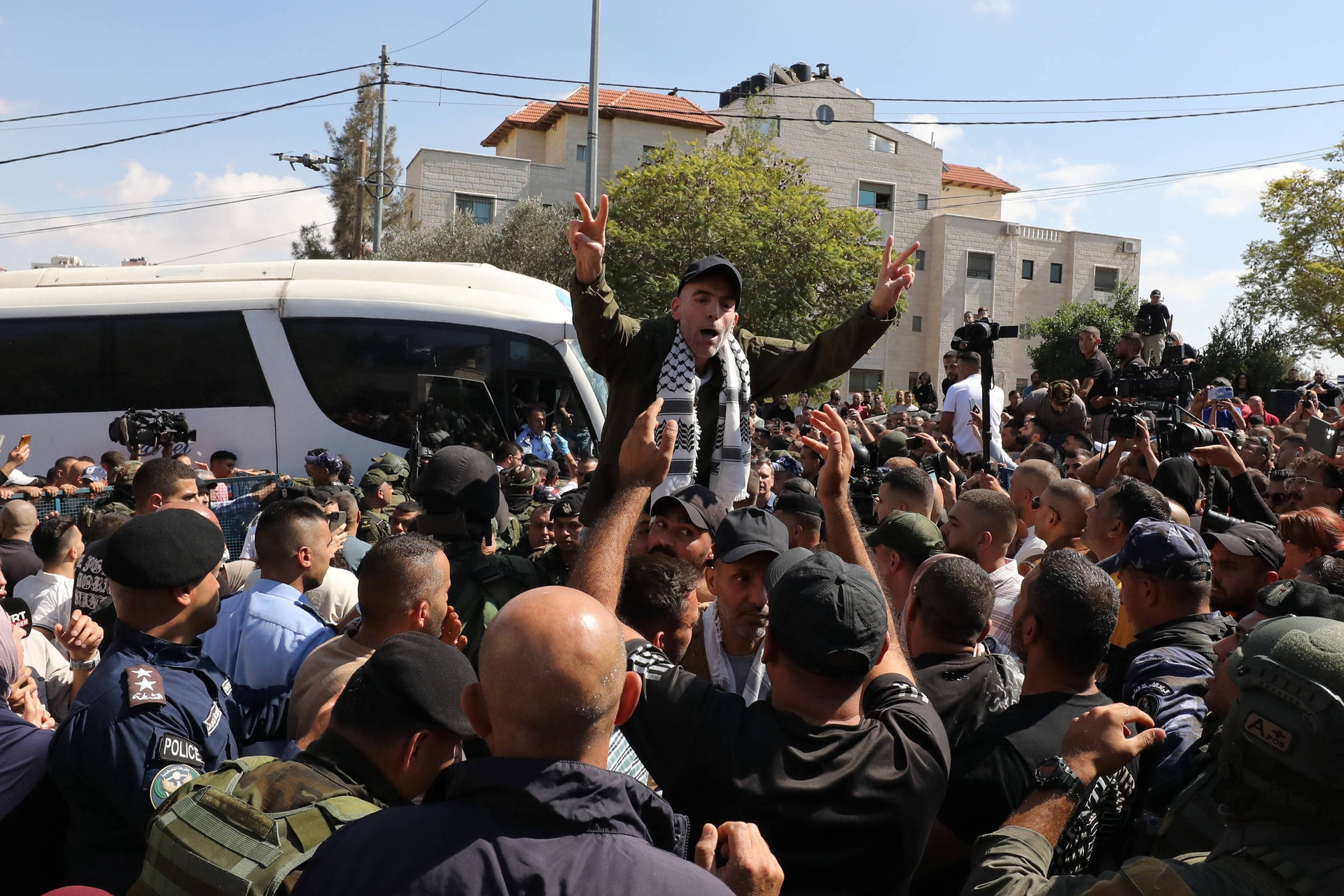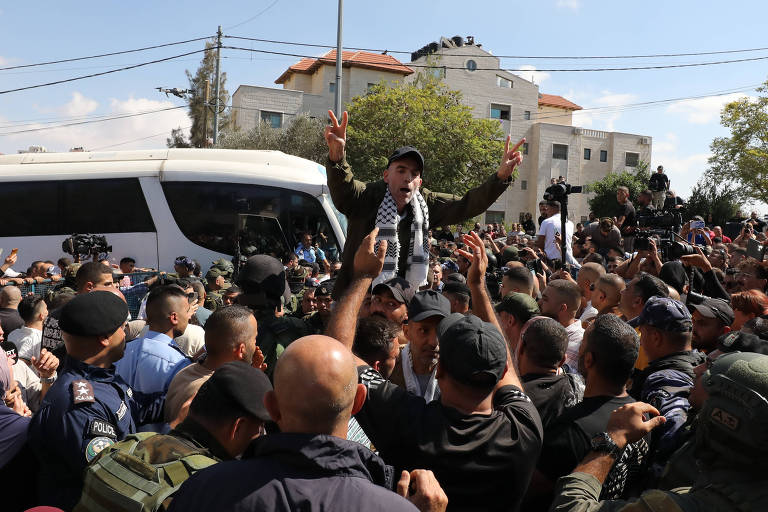Israeli and Palestinian euphoria clashes with uncertainty over next steps in peace agreement

With the release of the hostages still being held by the terrorist group Hamas and the handover of almost 2,000 prisoners in Israeli custody to the West Bank andGaza Strip , Israelis and Palestinians lived a day of joy, euphoria and relief on Monday (13), as evidenced by images of celebrations in the streets of Tel Aviv , Jerusalem and Ramallah.
"A very emotional day, the best day of the last two years, without a doubt, and one of the most important in Israel 's history," Brazilian-Israeli tour guide Gabriel Schorr told Folha . "Everyone is celebrating in the streets after days in which the return of the hostages seemed almost utopian."
Palestinian Um Ahmed told Reuters that her joy over the release of the prisoners—1,968 of whom were serving sentences on a variety of charges in Israeli prisons—was mixed with sadness over the situation in Gaza. "I'm happy for our freed children, but I grieve for those killed by the occupation."

Doubts about the next steps of the peace agreement hang over the region. Despite the conference between Muslim countries, Europeans, and the United States this Monday in Egypt to sign the Gaza ceasefire agreement, crucial issues remain unresolved—such as the disarmament of Hamas, the reconstruction of Gaza, and the exact nature of the technocratic government that should assume control of the Palestinian territory.
These points are part of Donald Trump 's peace plan, approved by both Israel and the Hamas leadership and endorsed by mediating countries such as Egypt, Turkey , and Qatar . In recent days, however, the terrorist group has avoided commenting on the next steps in the negotiations, while Israeli Prime Minister Binyamin Netanyahu , who did not attend the meeting in Egypt, says that "the war is not over yet."
"The only point that still has the potential to destroy the peace agreement is the issue of disarmament," says João Koatz Miragaya, a master's degree holder in history from Tel Aviv University and an advisor to the Brazil-Israel Institute. "But even if Hamas is completely disarmed, something to which it has not yet agreed and which I don't believe will happen, it won't happen anytime soon."
"Furthermore, the process is unclear: who will carry out this disarmament? Who will verify that it is happening? Who will take the place of armed forces in Gaza? None of this is defined," he assesses.
Still, Miragaya points out that the Palestinian faction likely already agreed to partial disarmament during the negotiations, so the deal should hold, at least in the short term. "There are too many forces involved and too much pressure being exerted. And Hamas would never have released the hostages alive if there hadn't been a clear guarantee [that the war would end]."
On the other side of the equation, Netanyahu appears to continue making calculations to ensure his political survival. The politician is accused of prolonging and expanding the war to avoid accountability for security failures that led to October 7th and to block the progress of corruption cases pending in the courts—and now he seeks to avoid the impression that he was forced by Trump to agree to a ceasefire after attacking Qatar and souring relations with Arab countries.
For Miragaya, Netanyahu's absence from Monday's summit in Egypt is a sign of this. "Israeli press reports claim [the prime minister] was invited, but wouldn't attend because of the Simchat Torah holiday"—which would be nothing more than an excuse, since Israeli politicians more religious than Netanyahu have already neglected Jewish duties when diplomatically necessary.
Another possibility, according to the British newspaper The Guardian, is that Netanyahu's refusal occurred after Turkish President Recep Tayyip Erdogan threatened not to land in Egypt if the Israeli appeared. Turkey has become one of the main mediators between Israel and Hamas in this final stretch of negotiations.
"His absence is linked to two points: the participation of [Palestinian Authority President Mahmoud] Abbas, because Netanyahu's extremist base would not like to see the two side by side, and the certainty that some part of the agreement will displease this same base and accelerate the overthrow of the government," he assesses.
This is because the prime minister depends on far-right parties to govern, and his departure from the coalition would precipitate elections and could lead to the end of the Binyamin Netanyahu era in Israeli politics. "But when [the prime minister] chooses not to go, he abstains from being part of peace plans for theMiddle East —and thus Israel leaves other actors to decide the future of the region," concludes Miragaya.
uol



%2Fhttps%3A%2F%2Fs03.video.glbimg.com%2Fx720%2F13400990.jpg&w=3840&q=100)
%2Fhttps%3A%2F%2Fi.s3.glbimg.com%2Fv1%2FAUTH_59edd422c0c84a879bd37670ae4f538a%2Finternal_photos%2Fbs%2F2025%2Fo%2F8%2Fx4TUdKTBqI5nZ6bLL36Q%2Fcaptura-de-tela-2025-10-10-150314.png&w=3840&q=100)